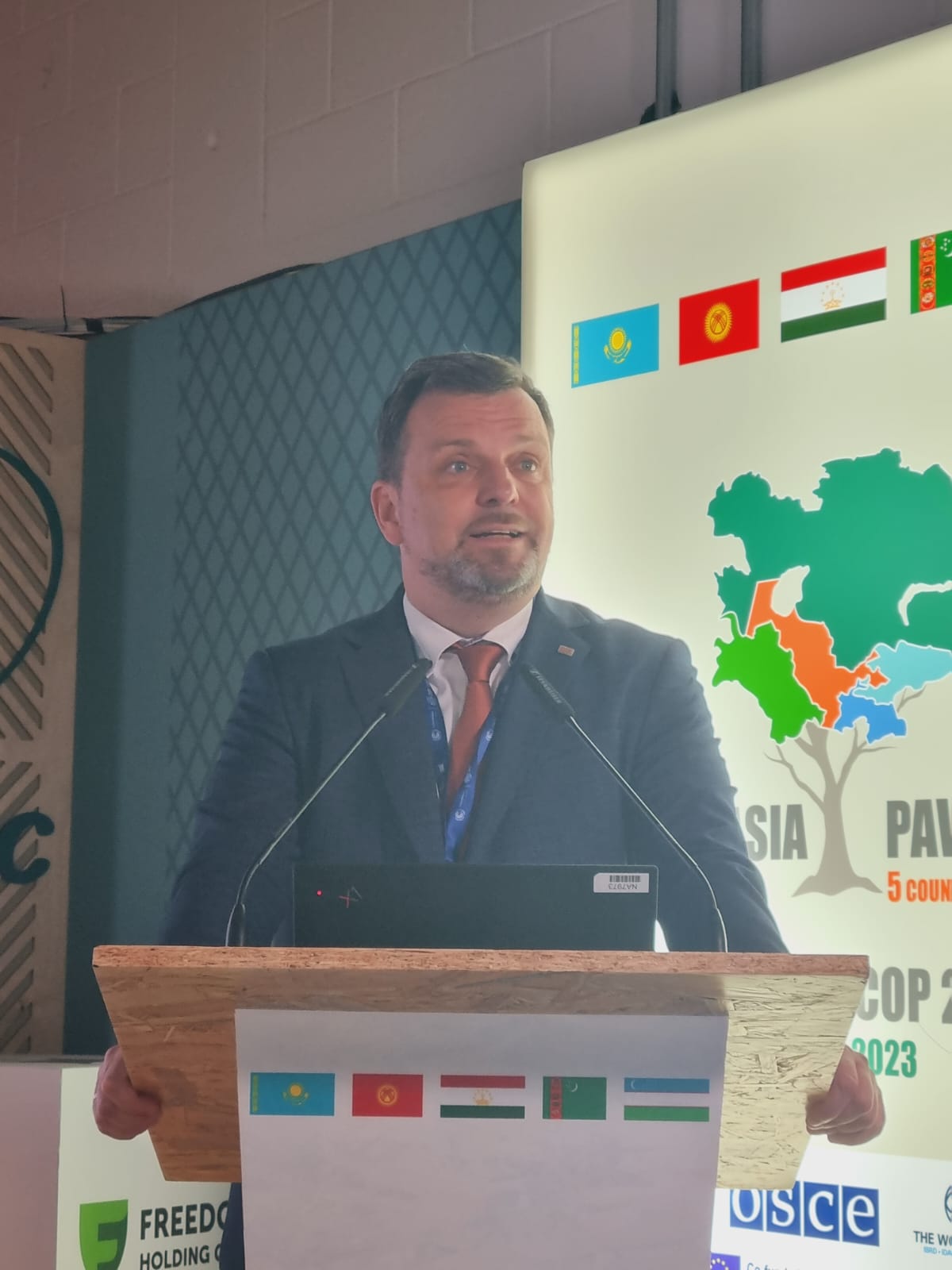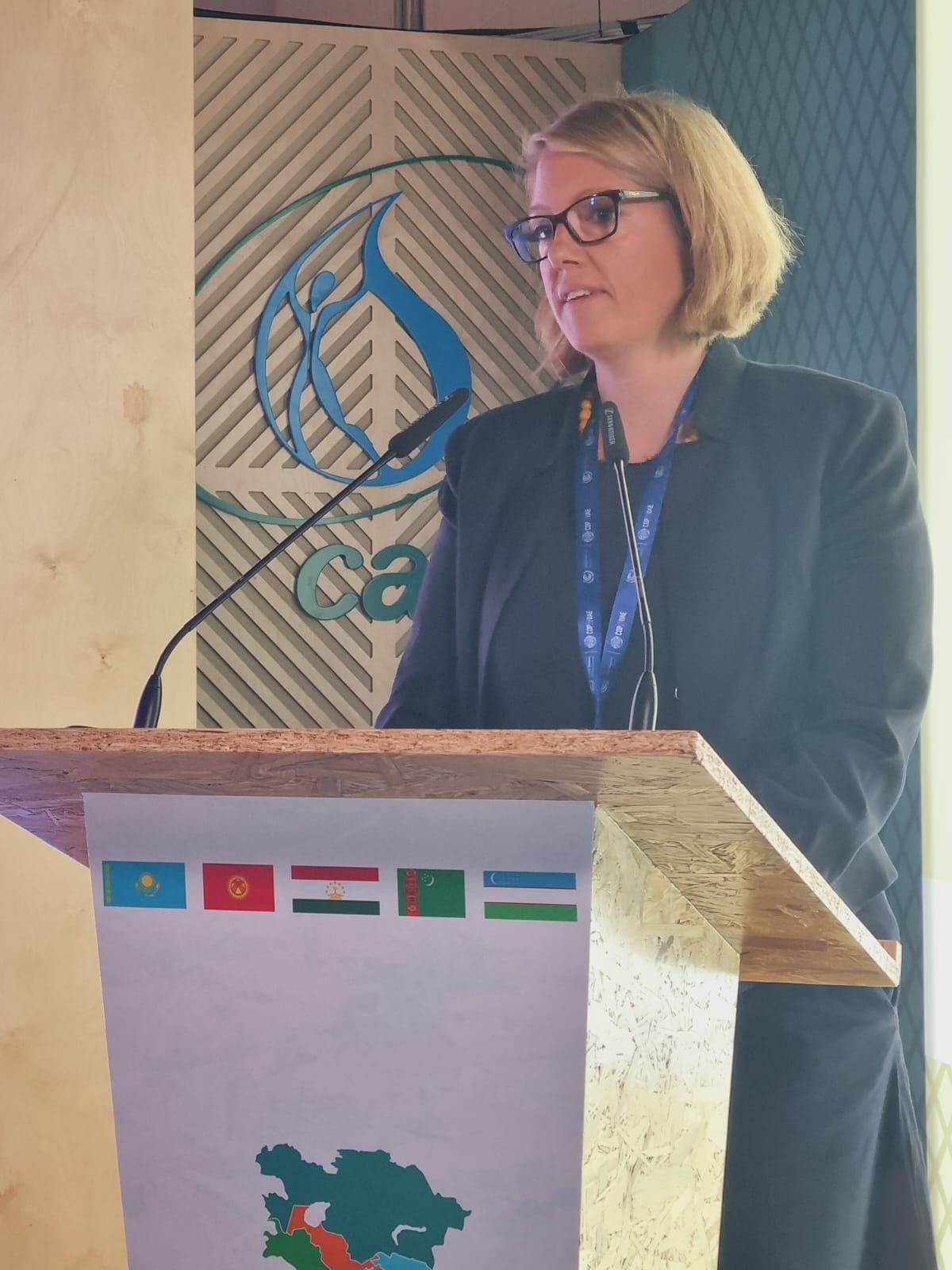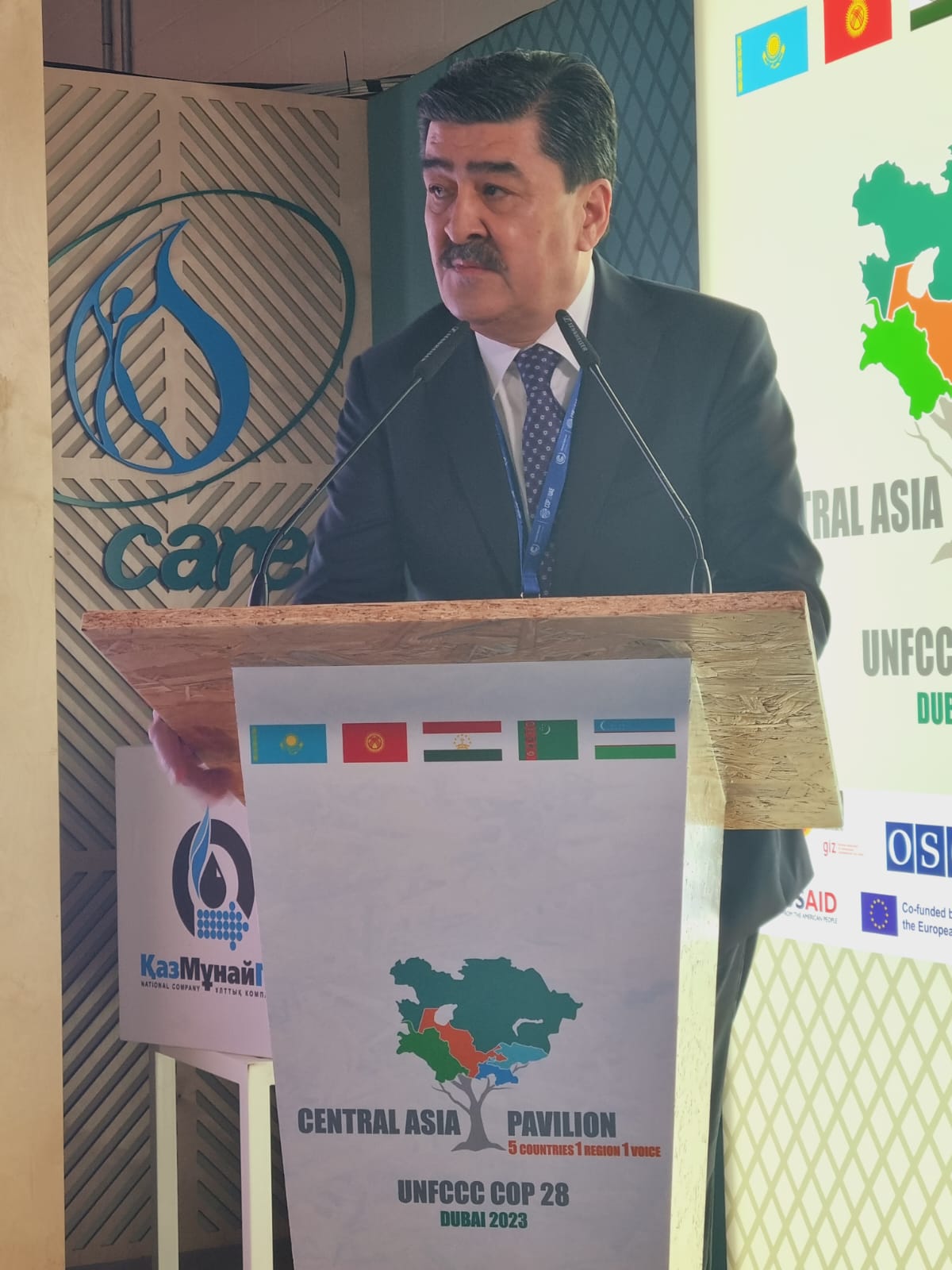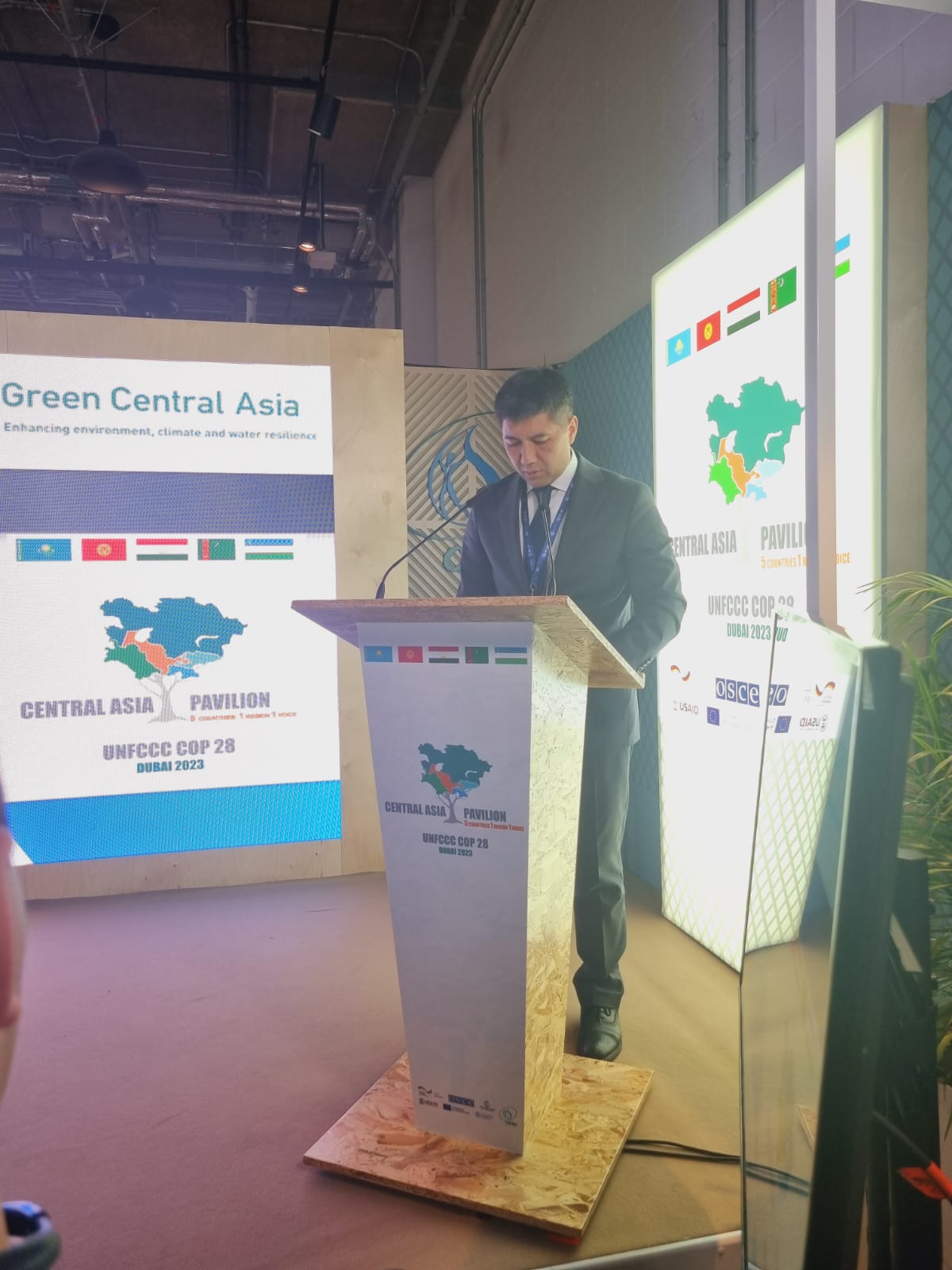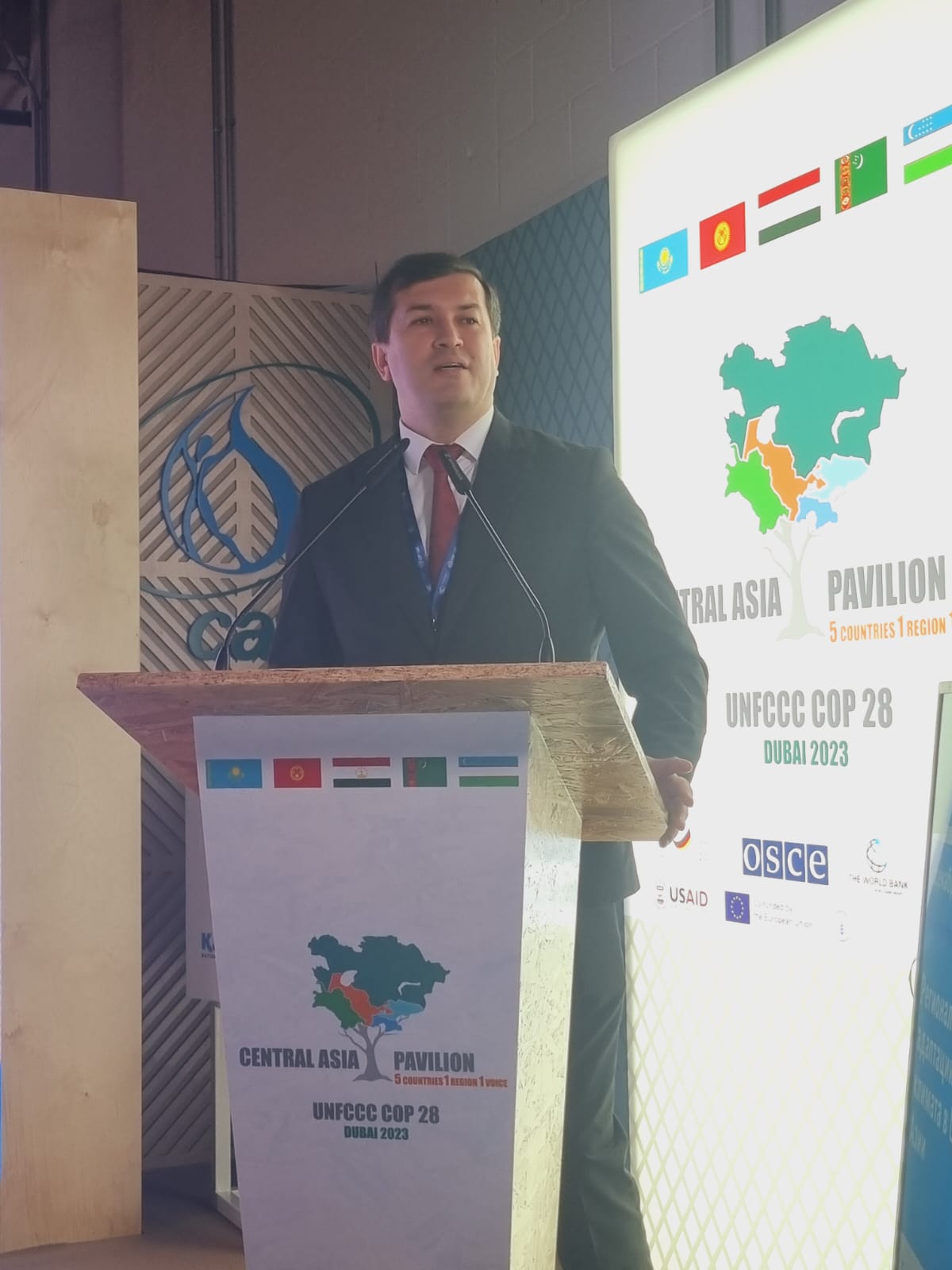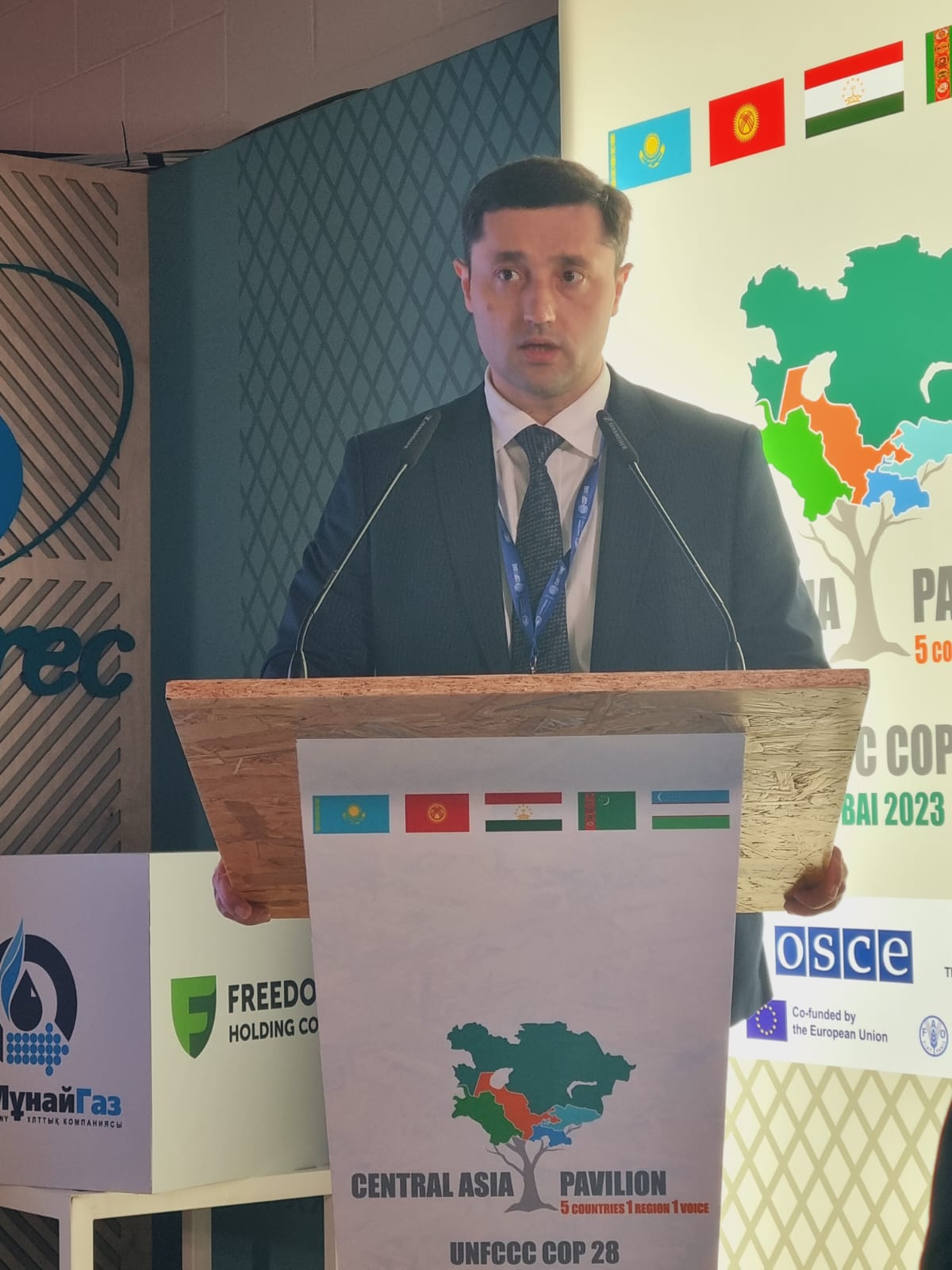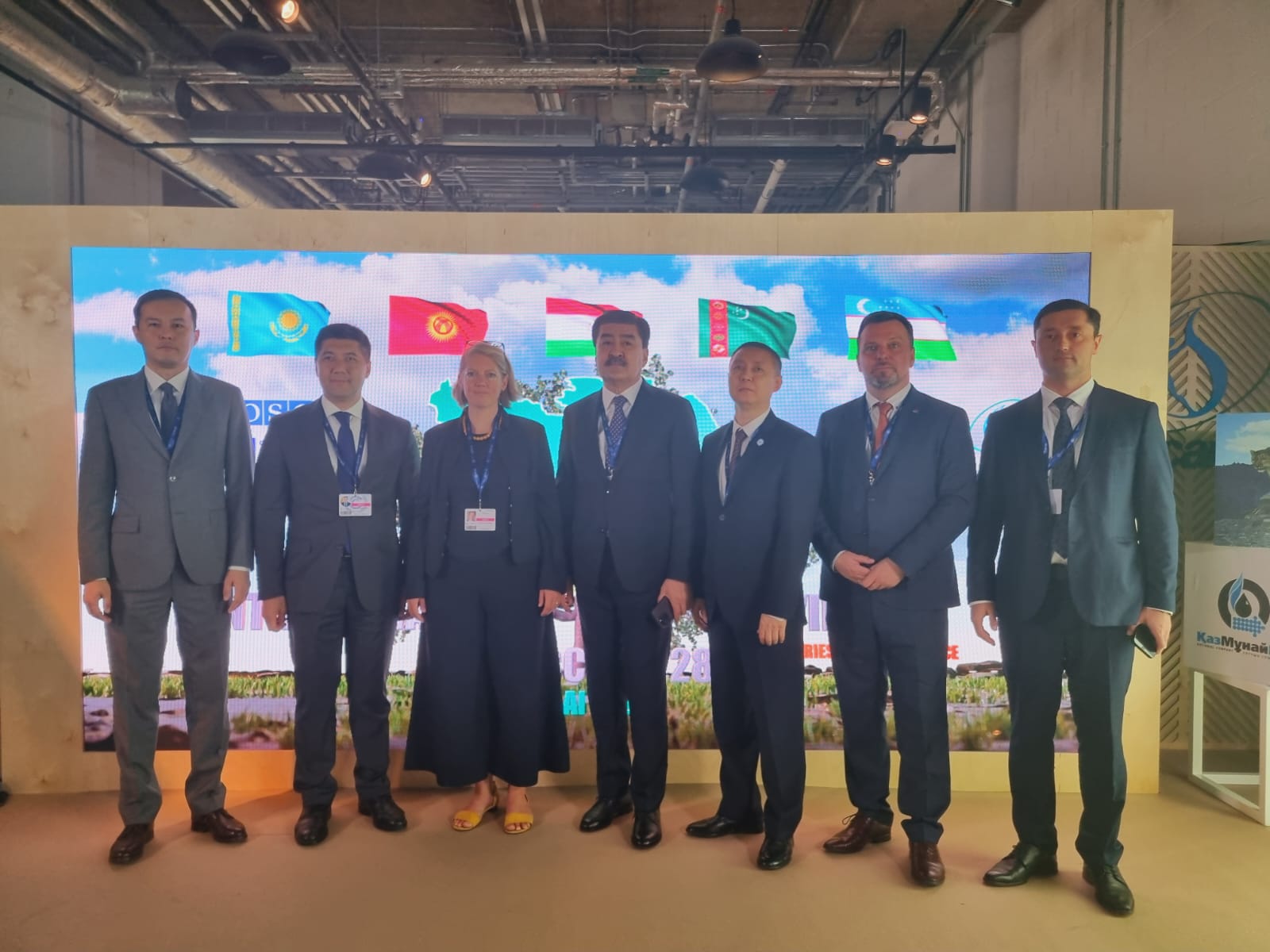
The UN climate summit in Dubai has become a landmark for the countries of Central Asia. Today, the Regional Strategy for Adaptation to Climate Change in Central Asia, approved by all countries of the Central Asian region, was presented to the international community.
Christina Wegelein, Climate and Security Division, German Federal Foreign Office, congratulated the Central Asian countries on adoption of the Regional Adaptation Strategy, which will positively address national and international security issues in the face of climate change challenges.
Commenting on the significance of this event, Zafar Makhmudov, Executive Director of the Regional Environmental Centre for Central Asia (CAREC), said that this strategy provides ample opportunities for countries against the backdrop of the international community's emphasis on solving climate problems, taking into account the regional approach.
“With challenges comes opportunity. What opportunity do we have? Two days ago, the UNFCCC COP28 Plenary established a Loss and Damage Fund. And this is a good opportunity for us. Many countries have developed national adaptation strategies. A regional approach provides an opportunity to adapt at the regional level and enhance cooperation. We have our strategy – a clear plan for the regional adaptation of our economies to the consequences of climate change,” Zafar Makhmudov said.
Representatives of all Central Asian countries agreed in the need to implement the Regional Strategy for Adaptation to Climate Change. The Regional Strategy for Adaptation to Climate Change demonstrates the understanding of the governments of the Central Asian countries of the common problem of climate change, which needs to be addressed at the regional level and adaptation measures must be developed. The effects of climate change are manifested in different ways in the countries of the region.
In Kazakhstan, climate change is leading to the loss of flora and fauna, huge areas of land due to soil degradation, and the agricultural sector is suffering. In Tajikistan, 80% of all negative climate impacts are associated with water resources: mudflows, floods, and floods. Currently, it is due to water resources. Tajikistan is currently developing a National Water Strategy until 2040, which will also take into account the regional approach.
Despite the high climatic vulnerability of the Central Asian region, the international scientific community does not have research data that gives a complete and objective picture of the real situation in the region.
According to the ND-GAIN Adaptation Index for 2022, the Central Asian region is less vulnerable and has a low level of preparedness for climate change, despite the large-scale adaptation actions taken by countries - the adoption of national adaptation strategies, and the implementation of several adaptation and mitigation measures.
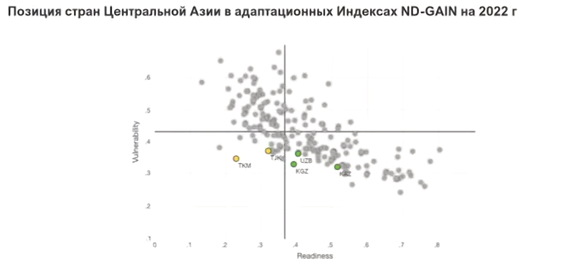
Bijan Fallah of the Potsdam Institute for Climate Impact Research (PIK) demonstrated that the PIA climate change scenario modelling for the European region offers 193 simulations, while for the Central Asian region, it offers 8 simulations
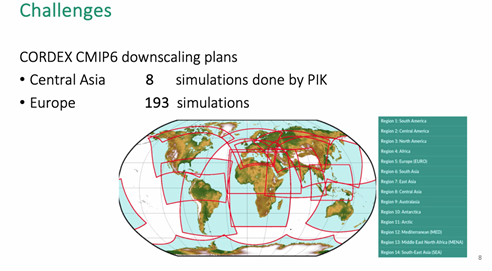
It indicates that the region is poorly studied and underrepresented in the international scientific community. Meanwhile, financial flows from international financial institutions are primarily directed to the country’s most vulnerable to climate change, according to research data such as the IPCC.
The event was organized within the framework of the GIZ Green Central Asia Initiative and CAREC.
Video recording of all events on December 2, 2023, at the Central Asia Pavilion - https://www.youtube.com/watch?v=dE7g7yOMUX0
Central Asia Pavilion “5 countries – 1 region – 1 voice” is organized by the Regional Environmental Centre for Central Asia (CAREC) in cooperation with the Governments of Central Asian countries under financial support of the GIZ, OSCE, the World Bank, USAID, the European Union, and the Food and Agriculture Organization of the United Nations (FAO).
Zhanna Husainova
